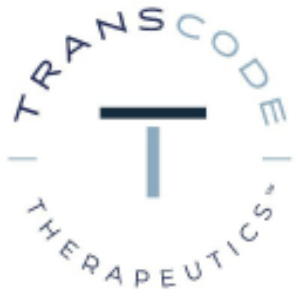TransCode Therapeutics Announces Publication in Cancer Nanotechnology of Preclinical Data Supporting Therapeutic Potential of TTX-MC138 in Metastatic Breast Cancer
– Imaging study confirms the biodistribution of TTX-MC138 in models of metastatic cancer, supporting TransCode’s TTX platform for delivery of RNA targeted therapy to metastatic solid tumors –
-- eIND submission for TTX-MC138 anticipated in 1Q 2022 to support Phase 0 study in metastatic solid tumors, designed to establish proof of concept for TTX delivery platform --
This preclinical study developed a radio-labeled derivative of TTX-MC138 (referenced as MN-anti-miR10b) tagged with Cu-64, enabling highly sensitive and specific quantitative determination of its pharmacokinetics and biodistribution, as well as observation of delivery to metastases via noninvasive positron emission tomography-magnetic resonance imaging (PET-MRI). The key results of the study demonstrated that TTX-MC138, when injected intravenously, accumulated in metastatic lesions. These results suggest that TransCode’s TTX platform delivers its therapeutic candidate as intended and the company believes supports clinical evaluation of TTX-MC138. In addition, the investigation describes the development of a microdosing PET-MRI approach that could potentially be used for measurement of TTX-MC138 biodistribution in cancer patients and its delivery to clinical metastases. The capacity to carry out microdosing PET studies in patients under an exploratory investigational new drug application protocol would represent an important step on the path to clinical translation because it could facilitate and expedite approval from the
“Our TTX technology builds upon prior experience with similar iron oxide nanoparticles that have long been used in humans for imaging, potentially enabling clinical studies that may de-risk future clinical trials by demonstrating successful drug delivery and assist in patient selection for future treatment,” said
TransCode expects to file an exploratory investigational new drug (eIND) application for TTX-MC138 in the first quarter of 2022 to support a Phase 0 study in patients with metastatic cancer. Under an eIND, FDA approval may be obtained more quickly and at lower cost than with a traditional IND for therapeutic agents.
About
TransCode is an emerging RNA oncology company created on the belief that cancer can be defeated through the intelligent design and effective delivery of RNA therapeutics. The Company has created a platform of drug candidates designed to target a variety of tumor types with the objective of significantly improving patient outcomes. The Company’s lead therapeutic candidate, TTX-MC138, is focused on treating metastatic cancer, which causes approximately
Forward-Looking Statements
This release contains “forward-looking statements” within the meaning of the Private Securities Litigation Reform Act of 1995, including, without limitation, statements concerning the results and implications of the preclinical study described above and the a potential microdosing PET-MRI approach in future clinical trials as well as the therapeutic potential of TTX-MC138 more generally, and the timing and outcome of expected regulatory filings, including the filing of an eIND for the planned first-in-human study of TTX-MC138. Any forward-looking statements in this press release are based on management’s current expectations of future events and are subject to a number of risks and uncertainties that could cause actual results to differ materially and adversely from those set forth in or implied by such forward-looking statements. These risks and uncertainties include, but are not limited to: the risk associated with drug discovery and development; the risk that the results of our planned clinical trials will not be consistent with our pre-clinical studies or expectations; risks associated with the timing and outcome of TransCode's planned regulatory submissions; risks associated with TransCode’s planned clinical trials for its product candidates; risks associated with obtaining, maintaining and protecting intellectual property; risks associated with TransCode’s ability to enforce its patents against infringers and defend its patent portfolio against challenges from third parties; the risk of competition from other companies developing products for similar uses; risks associated with TransCode’s financial condition and its need to obtain additional funding to support its business activities, including TransCode’s ability to continue as a going concern; risks associated with TransCode’s dependence on third parties; and risks associated with the COVID-19 coronavirus. For a discussion of these and other risks and uncertainties, and other important factors, any of which could cause TransCode’s actual results to differ from those contained in or implied by the forward-looking statements, see the section entitled “Risk Factors” in TransCode’s Quarterly Report on Form 10-Q for the period ended
View source version on businesswire.com: https://www.businesswire.com/news/home/20210923005306/en/
Investor Contact:
Stern Investor Relations
josh.rappaport@sternir.com
Company Contact:
tom.fitzgerald@transcodetherapeutics.com
Source:







